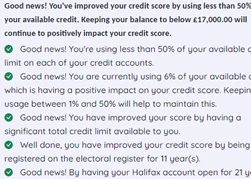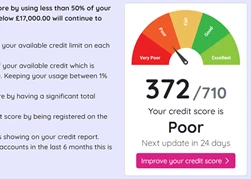Joint Credit Scores: How Applying with a Partner Affects You Both

11th Jul 2025
When applying for a mortgage, loan, or other financial product in the UK, many couples choose to apply jointly. While this can improve your chances of approval or increase the amount you can borrow, it also links your credit profiles. Understanding how joint credit applications affect both you and your partner is crucial before taking that financial step.
What Is a Joint Credit Score?
Contrary to popular belief, there’s no such thing as a single “joint credit score.” In the UK, credit reference agencies like Experian, Equifax, and TransUnion maintain individual credit files. However, when you apply for credit with someone else — whether it’s a partner, spouse, flatmate, or family member — a financial association is created between you.
This association means your credit reports will reflect that you are financially linked, and lenders may consider both your credit histories when making decisions.
How Joint Applications Affect Your Credit
Once you apply for a joint financial product, such as a:
-
Joint current account with overdraft
-
Loan or car finance
your credit files become interlinked. This connection stays on your report until the account is closed and you notify the credit reference agencies. Here’s how it can impact both parties:
-
Your partner’s score affects yours: If your partner has a poor credit history, this could lower your chances of approval, even if your own credit is excellent.
-
Shared responsibility: If either party defaults, both individuals could be held responsible for the full debt (this is known as “joint and several liability”).
-
Future borrowing: Your eligibility for future loans could be influenced by your partner’s ongoing financial behaviour.
What If the Relationship Changes?
Life changes — relationships end, financial situations shift, or people move on. If you’ve taken out joint credit with someone and are no longer financially connected, it’s important to:
-
Pay off and close joint accounts
-
Contact credit reference agencies to request a ‘financial disassociation’
Failing to remove a financial link could mean your credit applications still get influenced by the other person’s financial conduct, even years later.
Should You Apply Jointly?
There are benefits to joint credit applications, especially if:
-
One partner has a lower income but the other has a strong credit history
-
You need a larger borrowing limit (like for a mortgage)
-
You’re sharing the responsibility for repayment
However, it's essential to have an open conversation about your credit histories before applying and check each other’s credit reports.
Final Thoughts
Joint credit can be a great way to achieve shared financial goals, but it comes with responsibilities. A poor credit history from either party can affect you both, while good credit habits can help you grow together financially. If you’re unsure about your own or your partner’s credit health, run a check through CreditCheckOnline.co.uk for fast, secure insights.
Don't risk missing
something important
Access a comprehensive credit report
that includes detailed data from TransUnion
View your credit score for only £1.95.
You can view it for 1 month, after which it will be £14.95 per month unless cancelled.
See How You Score

See How You Score
An Independent View Of Your Credit Score
Lenders typically use their own systems to calculate your Credit Score based on the information in your Credit Report, often checking with one or more Credit Reference Agencies. Your Credit Check Online Credit Score is derived from all the Credit Report information we gather from TransUnion, helping you understand how you might be assessed when applying for credit.

Understand What is Affecting Your Credit Score
Quickly see how the details in your Credit Report influence your Credit Check Online Credit Score, both positively and negatively. This clear overview helps you identify areas for improvement and better understand the factors that lenders consider when assessing your creditworthiness.
View your credit score for only £1.95.
You can view it for 1 month, after which it will be £14.95 per month unless cancelled.